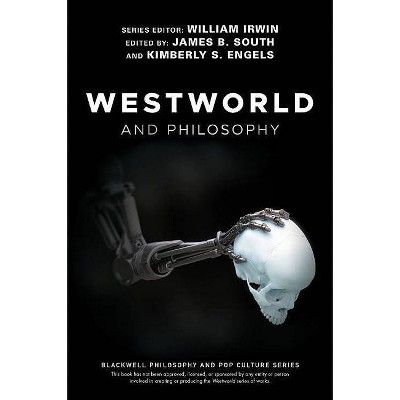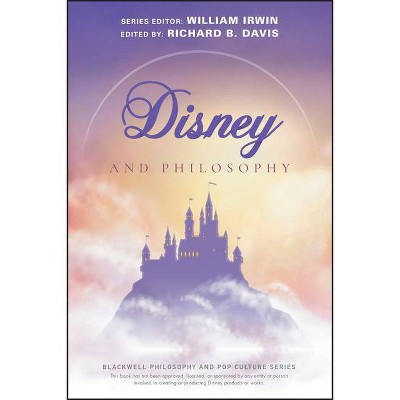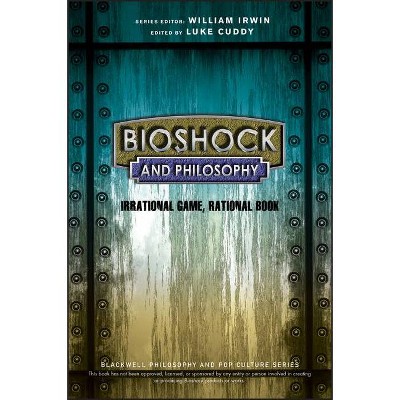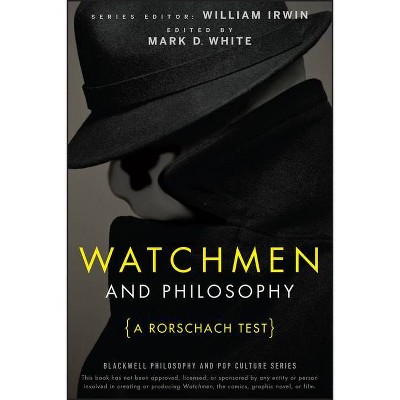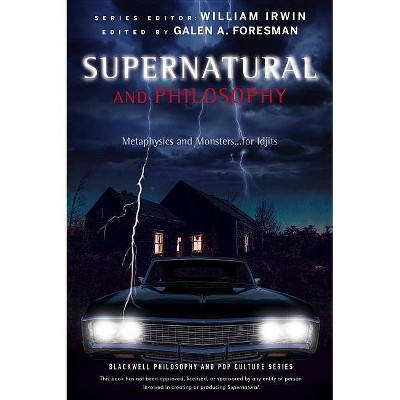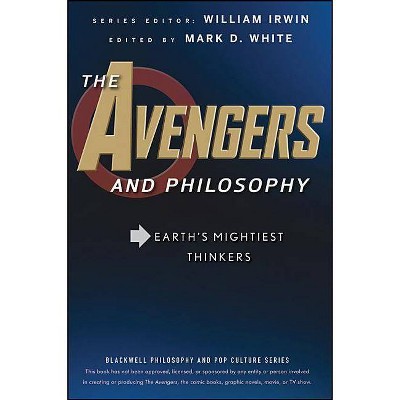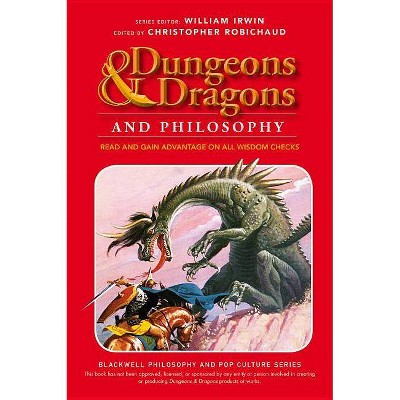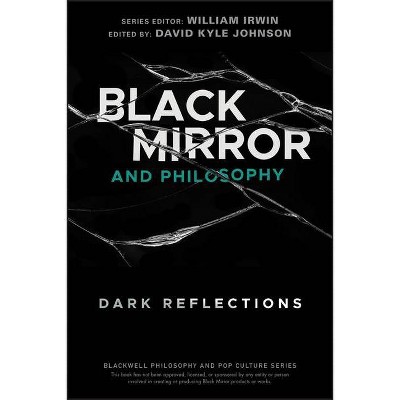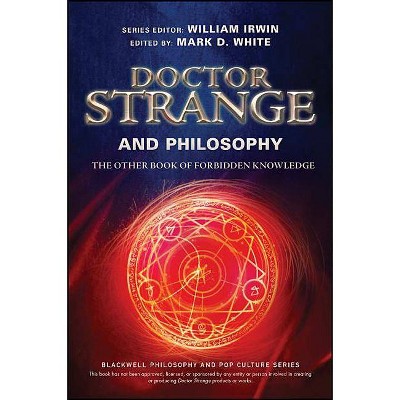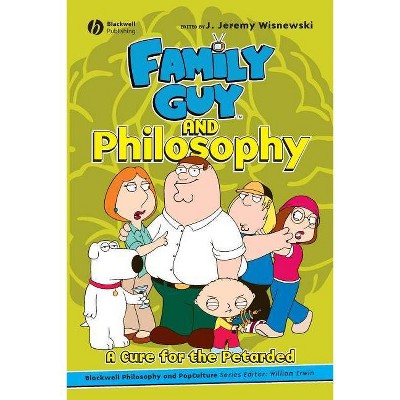The Good Place and Philosophy - (Blackwell Philosophy and Pop Culture) by William Irwin & Kimberly S Engels (Paperback)
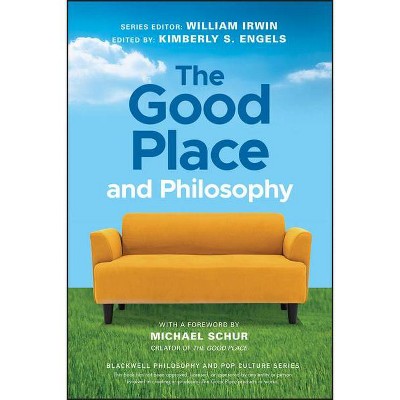
Similar Products
Products of same category from the store
AllProduct info
<p/><br></br><p><b> Book Synopsis </b></p></br></br><p><b>Dive into the moral philosophy at the heart of all four seasons of NBC's <i>The Good Place</i>, guided by academic experts including the show's philosophical consultants Pamela Hieronymi and Todd May, and featuring a foreword from creator and showrunner Michael Schur</b> </p> <ul> <li>Explicitly dedicated to the philosophical concepts, questions, and fundamental ethical dilemmas at the heart of the thoughtful and ambitious NBC sitcom <i>The Good Place</i></li> <li>Navigates the murky waters of moral philosophy in more conceptual depth to call into question what Chidi's ethics lessons--and the show--get right about learning to be a good person</li> <li>Features contributions from <i>The Good Place</i>'s philosophical consultants, Pamela Hieronymi and Todd May, and introduced by the show's creator and showrunner Michael Schur (<i>Parks and Recreation</i>, <i>The Office</i>)</li> <li>Engages classic philosophical questions, including the clash between utilitarianism and deontological ethics in the "Trolley Problem," Kant's categorical imperative, Sartre's nihilism, and T.M Scanlon's contractualism</li> <li>Explores themes such as death, love, moral heroism, free will, responsibility, artificial intelligence, fatalism, skepticism, virtue ethics, perception, and the nature of autonomy in the surreal heaven-like afterlife of the Good Place</li> <li>Led by Kimberly S. Engels, co-editor of <i>Westworld and Philosophy </i></li> </ul> <p> </p><p/><br></br><p><b> From the Back Cover </b></p></br></br><p><b>PHILOSOPHY/POP CULTURE</b> <p><b>Is the points system fair, or does it punish and reward people unjustly?</b> <p><b>Does Chidi really belong in The Bad Place?</b> <p><b>Is it possible for Michael to change his demonic nature?</b> <p><b>Is Eleanor capable of true moral improvement?</b> <p><b>Is Janet a person?</b> <p>No other television show has embraced moral philosophy quite like <i>The Good Place</i>, NBC's quirky and inventive sitcom featuring an imperfect cast of characters who, by virtue of a bureaucratic fork-up, find themselves residents of a cheerful, verdant afterlife reserved for the ethically elite. Funny, clever, and reliably good-hearted, <i>The Good Place</i> may poke a bit of fun at philosophy and namedrop Aristotle, Sartre, and Kierkegaard with a wink and a nod, but the series centers itself firmly around its characters' moral evolution and the ways in which they grow together, beginning a meaningful dialogue with modern audiences about what it means to be a good person. Is morality fixed or relative? What does it mean to be good--and is goodness sustainable if we are inherently self-interested? What do we owe each other, and what does trying to become a better person look like? <p><i>The Good Place and Philosophy</i> responds to the show's philosophical curiosity by mapping its broader intellectual landscape, adding context to Chidi's lectures and navigating the theoretical schematics of the ethical dilemmas that Eleanor and her friends face. Original essays situate <i>The Good Place</i> in relation to the work of a wide range of classic and contemporary philosophers and schools of thought, and discuss diverse concepts drawn from all four seasons of the show, including Kant's categorical imperative, T.M. Scanlon's contractualism, and Philippa Foot's classic trolley problem. Featuring contributions from the show's creator Michael Schur (<i>Parks and Recreation</i>, <i>The Office</i>) and its philosophical consultants Pamela Hieronymi and Todd May, the collection explores the philosophical underpinnings of the series while offering insight into many of the show's inside jokes, references, and recurring themes. <p>Whether you're doing the recommended reading for Chidi's class or just want to know who died and left Aristotle in charge of ethics, <i>The Good Place and Philosophy</i> is an accessible and engaging companion to the critically-acclaimed sitcom and its philosophical source material.<p/><br></br><p><b> About the Author </b></p></br></br><p><b>KIMBERLY S. ENGELS</b> is Assistant Professor of Philosophy at Molloy College, Rockville Centre, New York. She is the author of numerous book chapters and peer-reviewed journal articles, and is the co-editor of <i>Westworld and Philosophy</i>.
Price History
Cheapest price in the interval: 14.99 on October 22, 2021
Most expensive price in the interval: 14.99 on November 8, 2021
Price Archive shows prices from various stores, lets you see history and find the cheapest. There is no actual sale on the website. For all support, inquiry and suggestion messagescommunication@pricearchive.us
